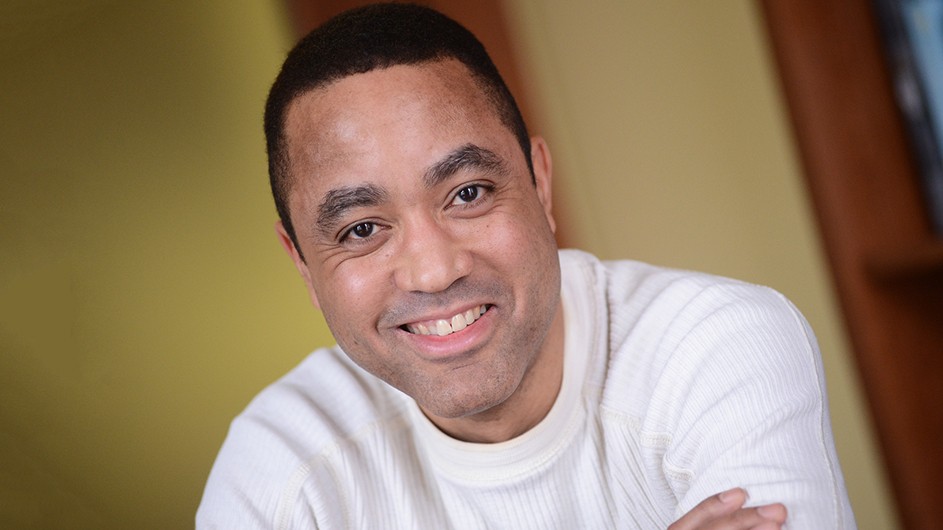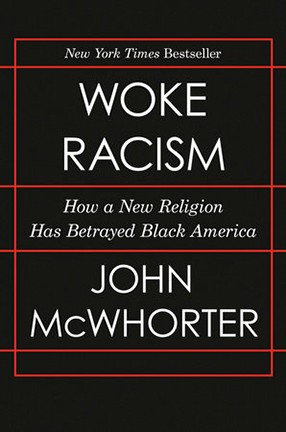John McWhorter Talks About His New Book, 'Woke Racism'

In his new book, Woke Racism: How a New Religion Has Betrayed Black America, Professor John McWhorter argues that a neoracism, disguised as antiracism, is hurting Black communities in this country. According to McWhorter, this well-meaning yet pernicious form of antiracism has become, not a progressive ideology, but a religion.
In Woke Racism, McWhorter shows how this new religion's claims to “dismantle racist structures” actually infantilize Black Americans, set Black students up for failure, and pass policies that disproportionately damage Black communities. He shares scripts and encouragement with those trying to deprogram friends and family, and offers a roadmap to justice.
Q. How did you come up with the idea for this book?
A. I was alarmed and even angry to see how many people were being fired, suspended, and publicly shamed for transgressions of what we might call "woke" etiquette starting in the spring of 2020.

Q. How did this new form of antiracism, or neoracism, that you discuss in the book develop?
A. Many people are under the impression that change for Black America can only happen in a real way if the rest of America is united in a profound understanding of what Black people have been through. This means that they see battling power differentials wielded by whites as central to intellectual and artistic endeavor, and any questioning of this as "white supremacy." I question these lines of reasoning—I want true change for Black America, but do not see this kind of psychosocial reprogramming as necessary to it.
Q. Can you give some examples from the book of the scripts, or other solutions, that you suggest to push back against woke racism?
A. Much of the new antiracist paradigm hurts Black people in the name of helping us. It thus should be resisted, as should, overall, the simplistic idea that battling power differentials must be our dominant endeavor as opposed to one of many. Thus: when a vocal minority of people in your organization insist that its whole modus operandi be transformed in order to hold battling power differentials as the MAIN goal, we must all develop the bravery to tell them no—and be fully prepared for them to call you a white supremacist in response.
Time passes, and what's important is that people like this not be under the impression that they can get anything they desire by calling the rest of us something awful. Most people do not agree with this form of wokeness; it won't do to pretend we do just to avoid being yelled at.
Q. What are some books you've read recently that you would recommend, and why?
A. On the woke racism kind of topic, I highly recommend Wilfred Reilly's Hate Crime Hoax, which questions the idea that absolutely all claims of discrimination by Black people must be taken as valid—i.e., that impact matters more than intent.
I have most recently read Dvorak's Prophecy by Joseph Horowitz, on why classical music is whiter than it should be; The Lonely Passion of Judith Hearne by Brian Moore, a grindingly tragic and very real novella read by too few these days; and Four Lost Cities by Annalee Newitz, about why urbanities have risen and fallen throughout history, and what we can learn from past examples.
Q. What's on your night stand now?
A. The Power of Adrienne Rich: A Biography by Hilary Holladay, and this magnificent new "everything" book: The Dawn of Everything by David Graeber and David Wengrow.
Q. What are you teaching this semester?
A. Introduction to Linguistics and The History of the English Language.
Q. You're hosting a dinner party. Which three scholars or academics, dead or alive, would you invite, and why?
A. Steven Jay Gould, because he was both a paleontologist (I love dinosaurs A LOT) and a humanist, and taught me a lot about thinking and writing.
W.E.B. DuBois, circa 1905, to suss him out on all kinds of things, all of which he would have been able to speak on.
Camille Paglia, because she truly thinks for herself, and operates beyond the idea that thinking must be divorced from feeling.
Check out Books to learn more about publications by Columbia professors.